The One Skincare Product an Expert Would Say Is Missing From Your Beauty Routine
Our editors share the best face oils they've tried—and they've tried a lot.
Eleanor Vousden
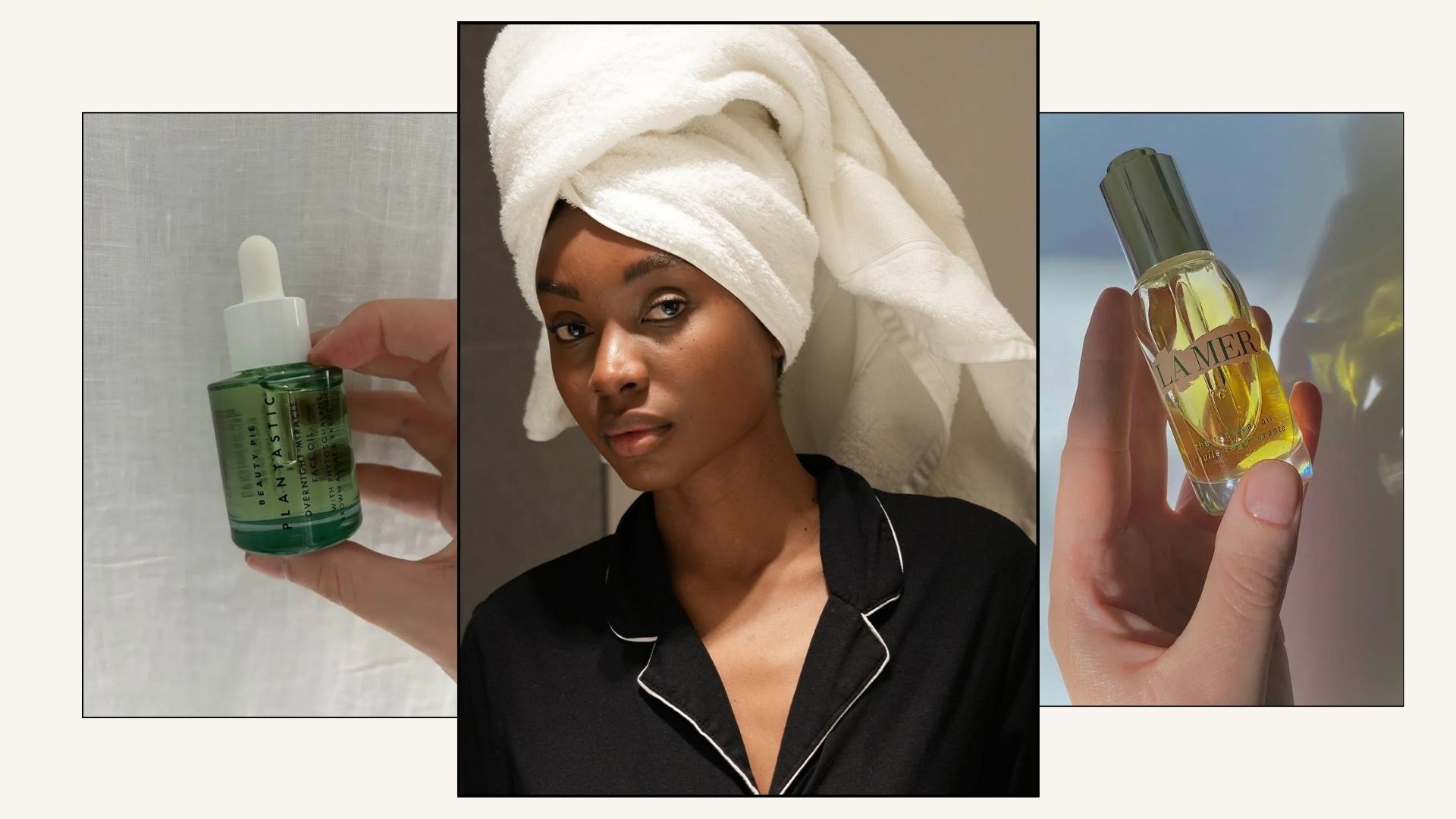
We've spent plenty of time discussing the importance of cleansing here at Who What Wear UK. Getting the first step of your skincare right is key in creating a solid foundation for the rest of your skincare routine… but what about the other steps? From toners and exfoliators to serums and moisturisers, there are a whole host of other seemingly essential skincare steps that are key in our quest for great skin. But there's one product that often ends up being forgotten about above all others: face oil.
Benefits Of Face Oils
Praised for its hydrating abilities and super-powerful ingredients, face oil can help with a multitude of skin issues, including dehydration, pigmentation and environmental damage. So why should we be using a face oil in addition to our many other steps, such as the use of serums? "Oils are focused on hydration for glowing skin, whereas serums target wider concerns," explains Mark Curry, co-founder of The Inkey List. They're particularly great if you have dry or mature skin as they help to nourish and lock in moisture into the skin.
When to Use a Face Oil
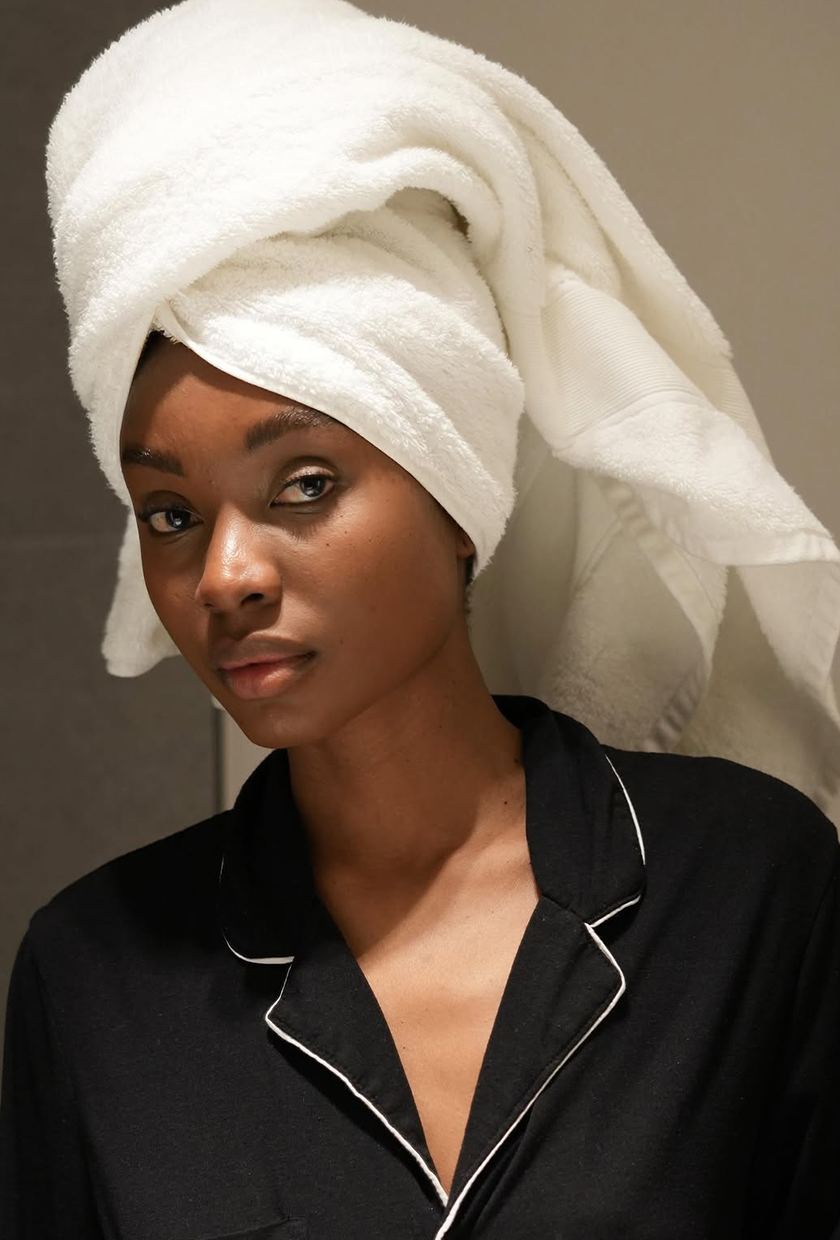
So, how does a face oil fit into our routine? "In your skincare routine, use serums first (after cleansing and hopefully toning) before your go-to oil or moisturiser," says Curry. Depending on your skin type, you may prefer to use a face oil at night if you find oils too heavy for daytime or underneath makeup.
What to Look For
The biggest concern isn't whether you should be using a face oil—it's the type of oil you should be choosing for your skin type and your complexion's needs.
There are many different oils, from argan to jojoba and rose-hip to olive oil. It's largely about the level of hydration your skin actually needs. Curry recommends sticking to "non-clogging oils" if you have acne or oily skin. These include rosehip, squalane, borage, camelia, safflower and sea buckthorn.
For mid-level moisture, move up the comedogenic scale for increased nourishment from medium oils like almond, rice bran and primrose, he says. For deeply dehydrated skin, Curry recommends opting for moringa, marula, avocado, coconut oil and cocoa butter.
To help you decide which one's best for you, take a look at our comprehensive guide of some of the best face oils.around
The Best Face Oils, Tried & Tested
- Best Overall: Beauty Pie Plantastic Overnight Miracle Face Oil (£19)
- Best For Dry Skin: Youth To The People Superberry Hydrate and Glow Oil (£43)
- Best Lightweight Face Oil: Drunk Elephant Virgin Marula Luxury Facial Oil (£64)
- Best For Oily Skin: Pai Skincare Rosehip Bioregenerate™ Rejuvenating Overnight Face Oil (£32)
- Best For Mature Skin: Tata Harper Retinoic Nutrient Face Oil (£148)
- Best For Acne-Prone Skin: Dermalogica
- Best For Sensitive Skin: The Body Shop
- Best Luxury Face Oil: La Mer
- Best Affordable Face Oil: The Ordinary 100% Organic Cold-Pressed Moroccan Argan Oil (£6)
1. Beauty Pie Plantastic Overnight Miracle Face Oil
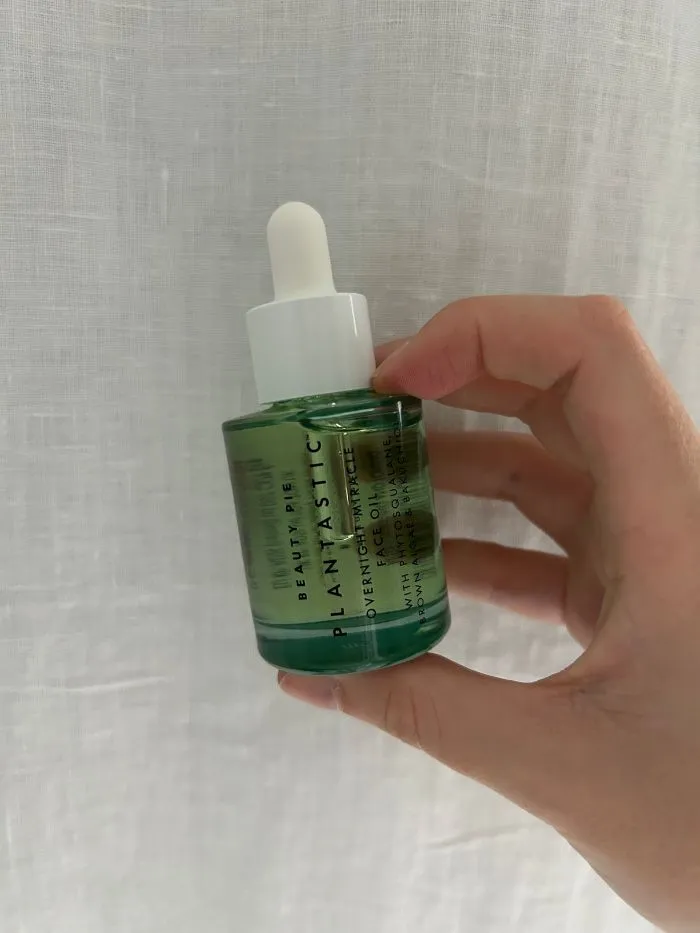
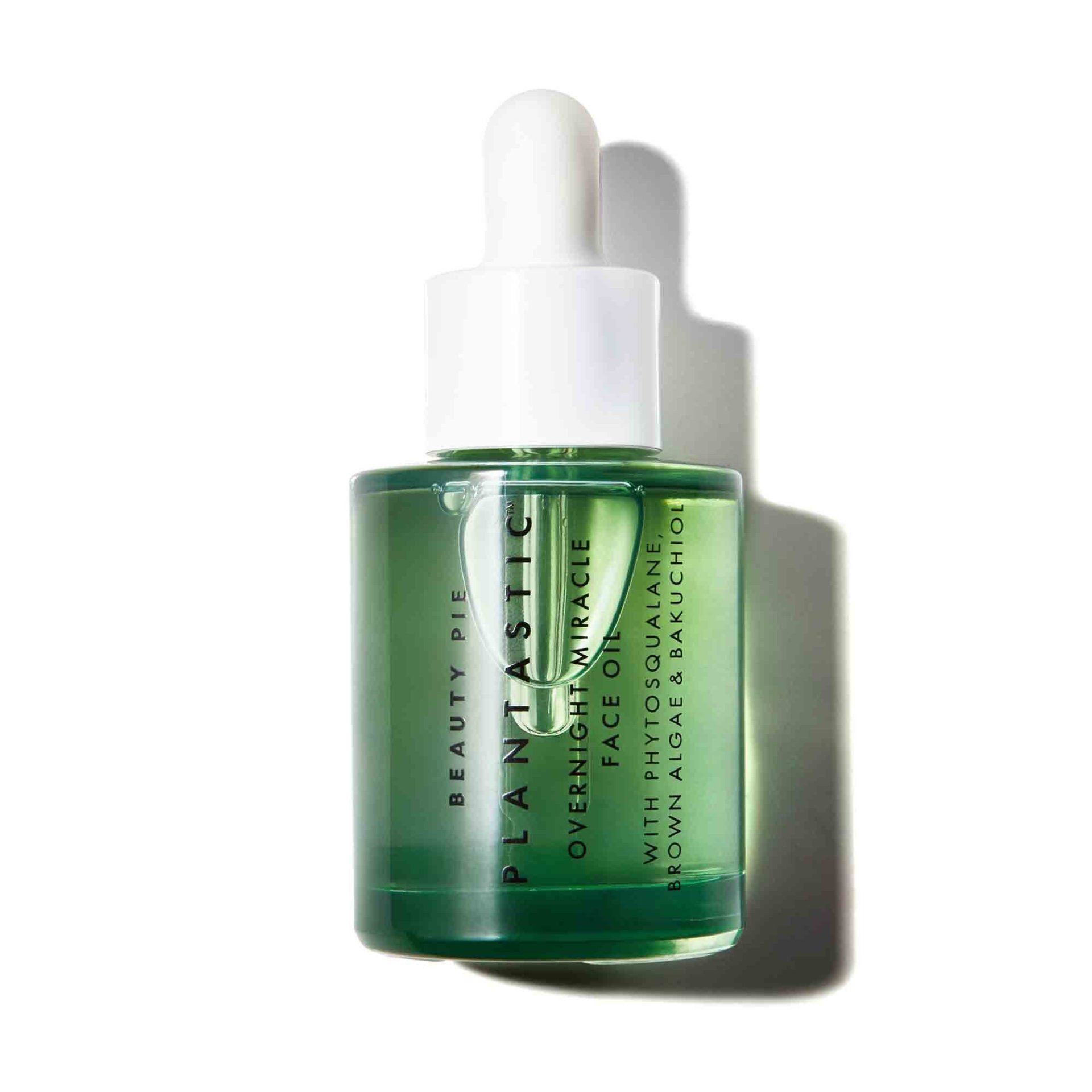
Price shown is members' cost.
Ingredients: Grapeseed oil, sweet almond oil, jojoba oil, avocado oil, baobab oil, rosehip oil, neroli oil, turmeric oil
Beauty Pie's Plantastic range is a favourite amongst our team, but it's the face oil that is the standout. It contains a cocktail of skin-loving oils and will get on well with most skin types while addressing fine lines and leaving your skin looking soft, supple and plumped.
"I've tried a lot of facial oils over the years, and this Beauty Pie one is definitely the one I recommend the most to others," says Who What Wear UK junior beauty editor, Grace Lindsay. "It has a super nourishing formula, but it doesn't feel greasy or overly oily when applied to the skin. Instead, it sinks in nicely and leaves you with a radiant glow. The formula contains grapeseed, sweet almond, jojoba, avocado, baobab, rosehip, neroli and turmeric oils, alongside lots of other skin-loving ingredients to give your complexion a boost."
Pros
- Contains a number of oils to hydrate and nourish the skin
- More affordable than other face oils out there
- Helps to plump fine lines
Cons
- You need to be a member to access lower price
2. Youth To The People Superberry Hydrate and Glow Oil
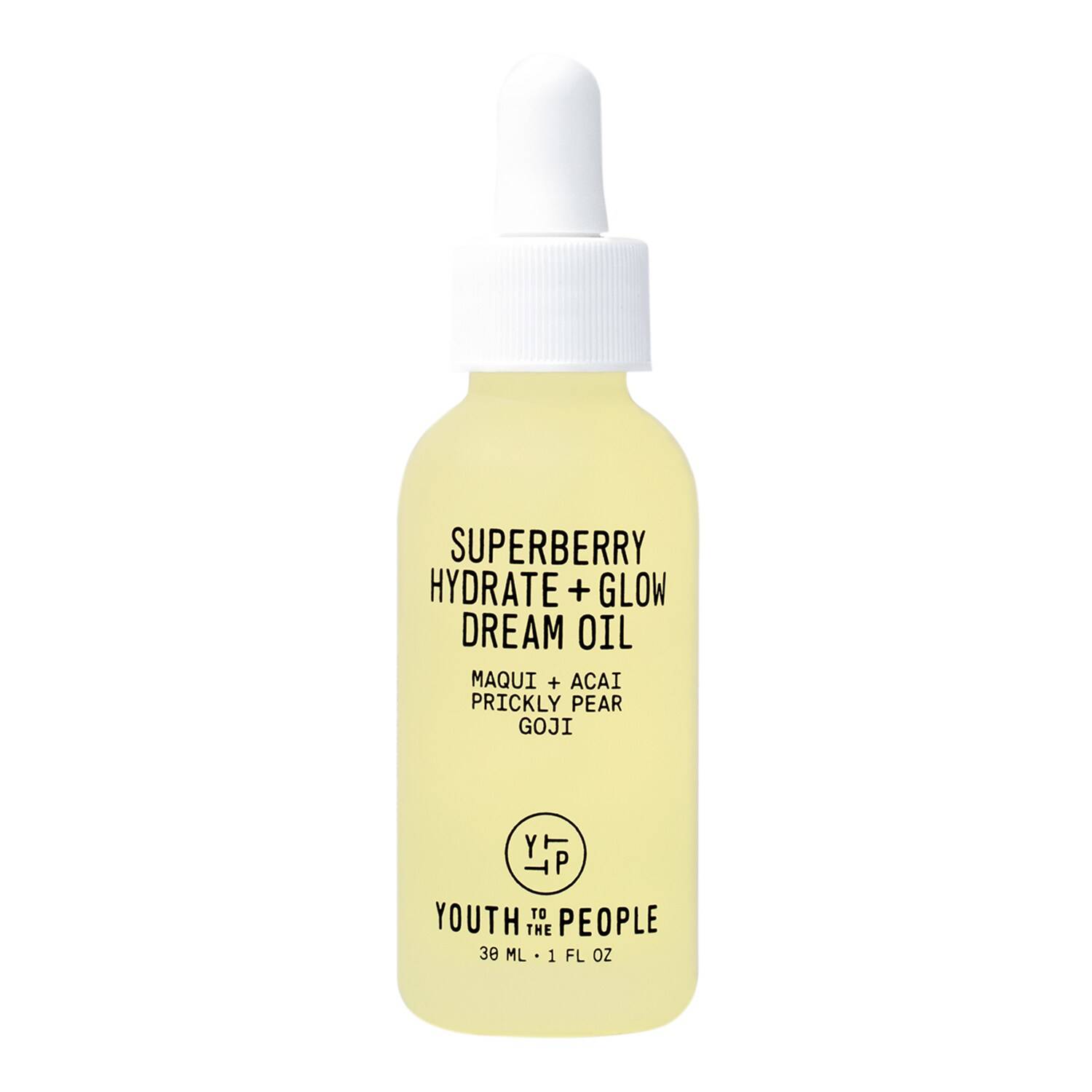
Ingredients: Squalane, jojoba, sunflower oil, superberry blend
Youth To The People is a mainstay on our beauty shelves and the face oil is not to be missed. It contains squalane, jojoba and sunflower oils which brilliantly nourish all skin types, but it's a particularly good face oil if you have dry skin.
"Call me a little biased, but Youth To The People is one of my favourite skincare brands of all time," says Who What Wear UK SEO writer, Ava Gilchrist. "I live and die its Youth To The People Superberry Hydrate and Glow Dream Oil for the most well-nourished complexion. As the name suggests, super berries—a type of fruit rich in nutrients and antioxidants, like maqui, acai, prickly pear and goji berries are the star of the stars of the show. It’s super lightweight, meaning that your skin won’t be left feeling greasy, but the formulation is also super potent, meaning that you’ll get all the moisturising and brightening effects in a few drops. Best of all, it also works to smooth and firm the skin while also reducing fine lines."
Pros
- Great for dry and dehydrated skin types
Cons
- A little more on the expensive side
3. Drunk Elephant Virgin Marula Luxury Facial Oil
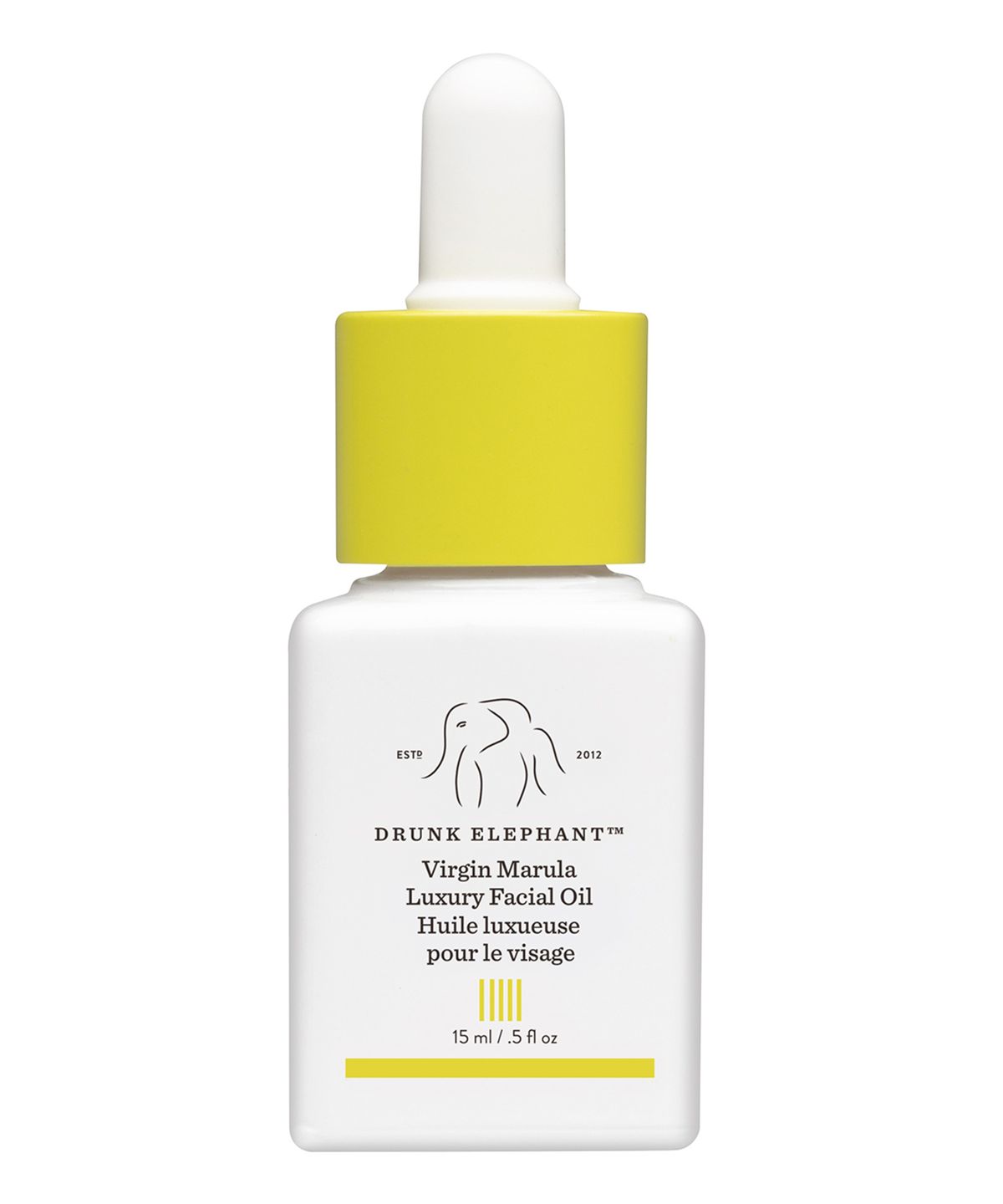
Marula oil is packed full of antioxidants (even more than argan has), as well as essential fatty acids like omegas 6 and 9. Because of this, it's brilliant at protecting skin from environmental aggressors like pollution, and at keeping skin looking supple and fresh. It contains smaller molecules than most oils, so it can penetrate deeper into the skin and absorb quickly. Marula is also noncomedogenic, meaning it hydrates deeply but won't clog pores or worsen breakouts. If anything, it will probably help them because of its unique benefits.
"I love the Drunk Elephant Marula Oil—it’s lightweight, sinks in beautifully, and leaves my combination skin feeling balanced, never greasy," says Who What Wear UK junior branded content editor, Humma Hussain. "It creates the perfect slip for my gua sha, helping the tool glide smoothly without tugging. The pure marula oil is rich in antioxidants and omegas, keeping my skin nourished, smooth, and glowing."
Pros
- Lightweight
- Great for facial massage
Cons
- Luxury formula has a luxury price tag to match
4. Pai Skincare Rosehip Bioregenerate Rejuvenating Overnight Face Oil
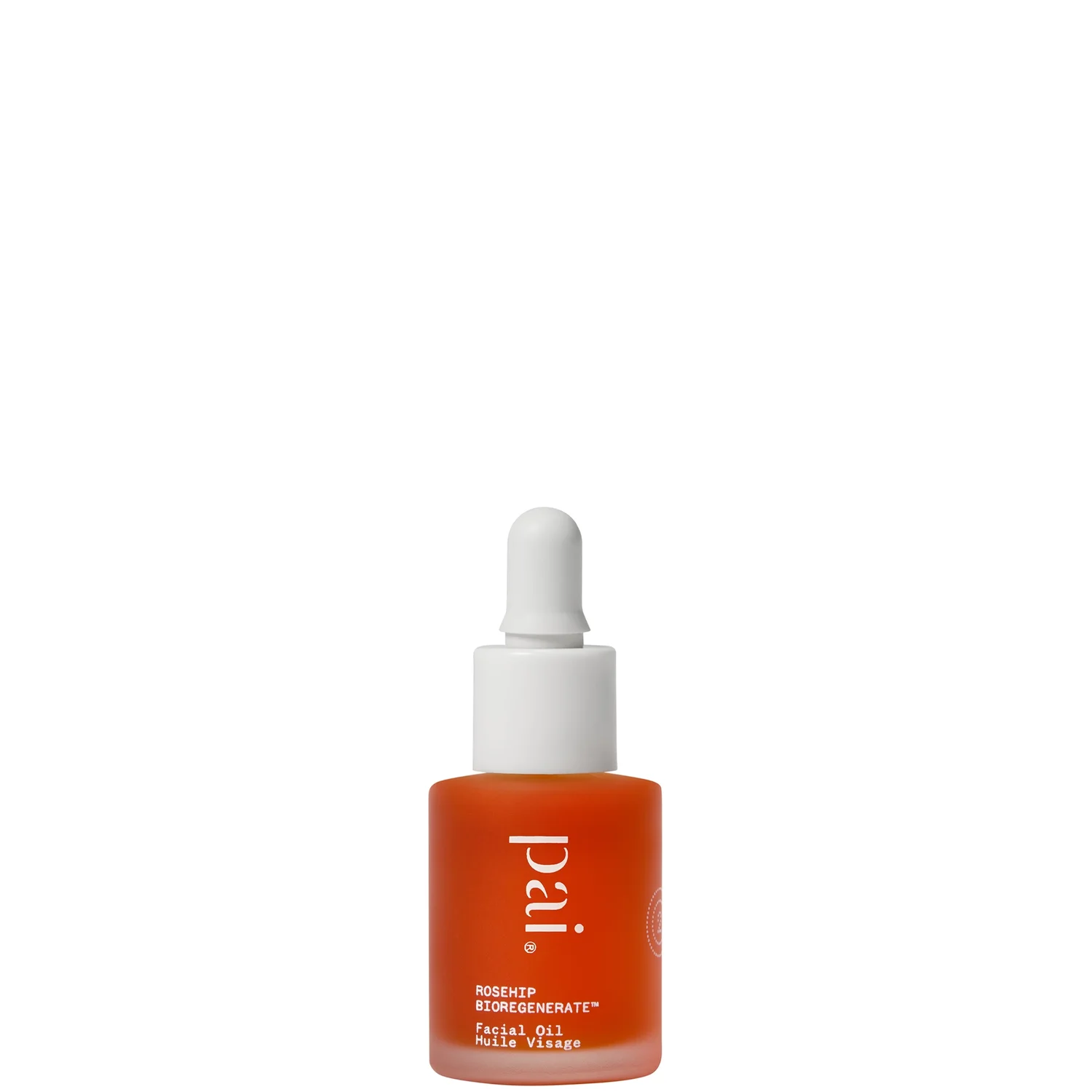
Ingredients: Rosehip seed oil, rosehip fruit extract, vitamin E, rosemary extract, squalene, beta-sitosterol.
Rosehip oil is a great option for oily or acne-prone skin, as it doesn't clog pores. It's also great for sensitive skin types. For this reason, Curry calls rosehip the ultimate all-rounder. "Rosehip is a gold standard go-to oil, as it ensures nourishment, hydration and antioxidants, which enable not just brightening but also skin renewal," he says.
"I have oily skin, particularly around my T-zone, so I've often avoided face oils, but Pai's rosehip oil is one of the very few face oils my skin gets on with," says Who What Wear UK beauty editor, Eleanor Vousden. "It feels nourishing but not overly greasy (although I'd personally use it overnight rather than in the day) and doesn't clog my pores. What I love about it is that it has helped to fade acne scarring and has left my complexion looking more even-toned and radiant. It's also a great choice for those with sensitive skin if you're worried about irritating your skin."
Pros
- Great for all skin types, but particularly oily or sensitive complexions
- Great at brightening and evening the skin
Cons
- Smell takes getting used to
5. Tata Harper Retinoic Nutrient Face Oil
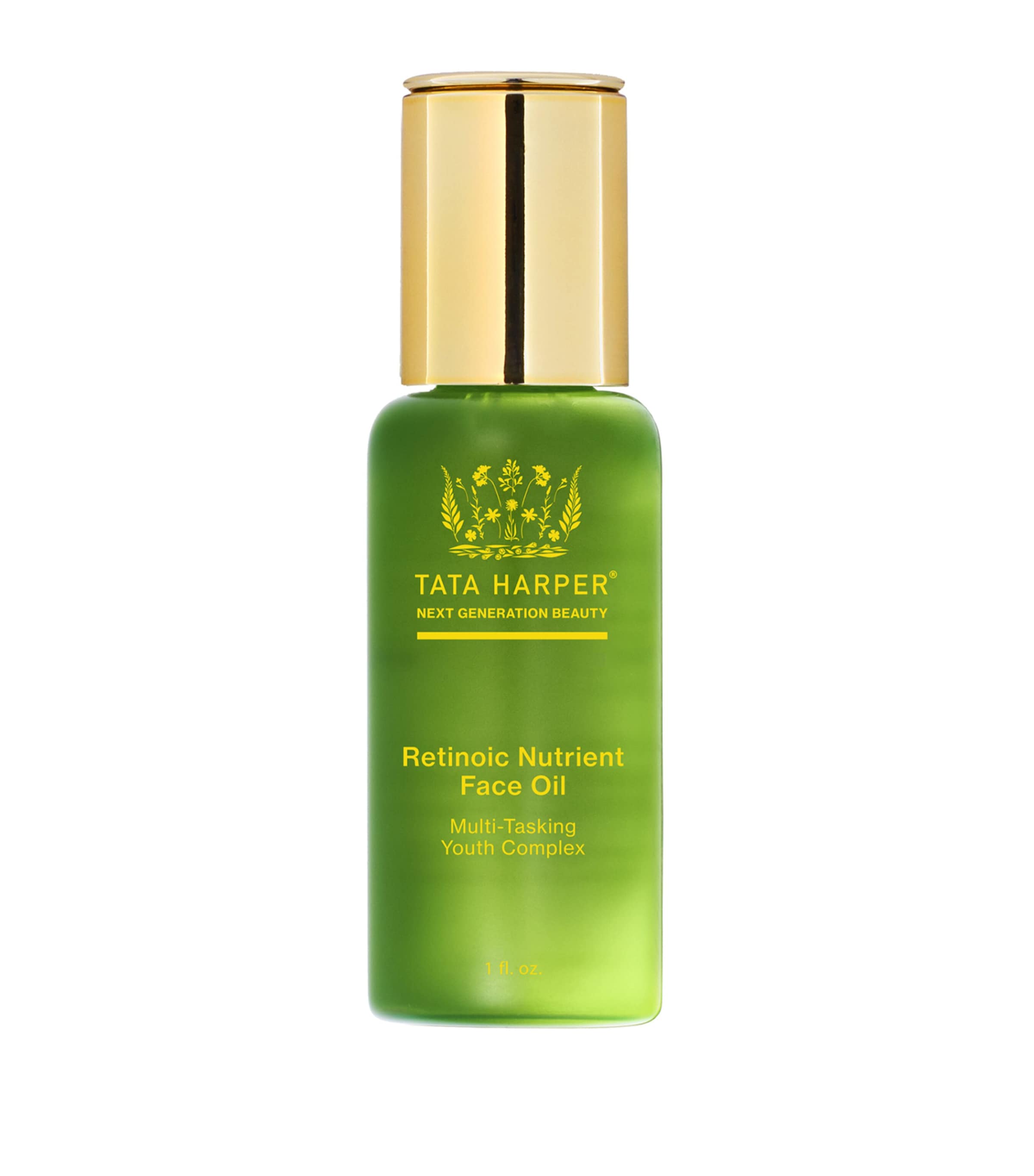
Ingredients: Babassu oil, olive oil, jojoba oil, rosehip oil, evening primrose oil, apricot kernel oil, green tea seed oil, neroli peel oil
Most squalane-based oils are derived from olives, meaning they're a great option if you fancy reaping the benefits of olive oil on your skin. While it may sound heavy, squalane (like rose-hip) is also a great option for oily or acne-prone skin, as it's still fairly light. "It's super hydrating for acne- and eczema-prone skin due to a boosted anti-inflammatory," explains Curry. Tata Harper's ultra-luxe formula contains 40 (yes, 40!) botanical ingredients which work in tandem to nourish and rejuvenate the skin. It also contains plant versions of retinol to help plump fine lines and wrinkles, while the fatty acid-rich formula ensures skin remains plumped, soothed, bouncy and radiant. It's a great choice if you have mature skin that needs additional nourishment.
Pros
- Luxury formula
- Contains 40 botanical ingredients
- Helps to plump fine lines and wrinkles
Cons
- Expensive
6. Dermalogica Retinol Clearing Oil
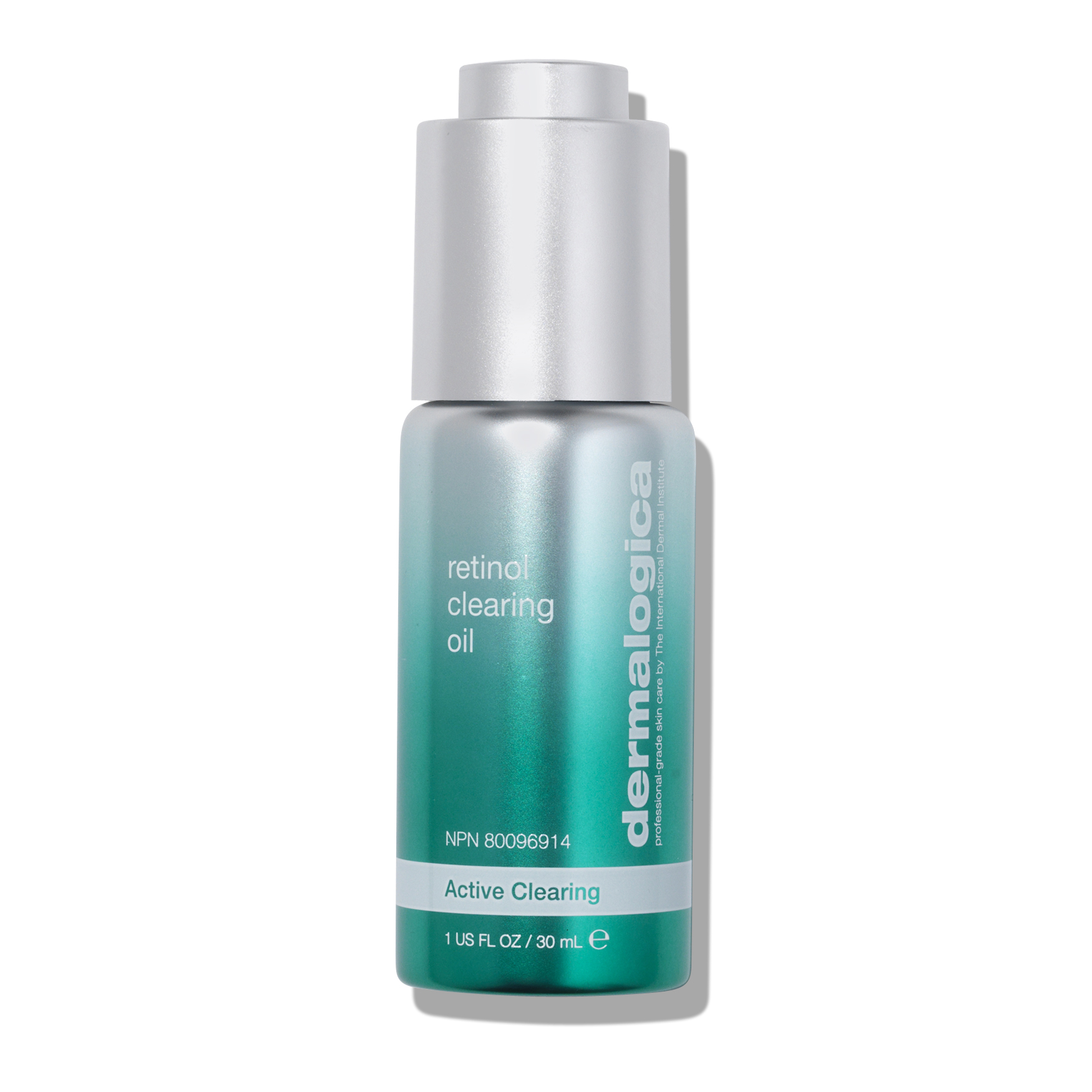
Ingredients: Jojoba seed oil, argan oil, rosehip oil, retinol, salicylic acid
Jojoba is rich in vitamins A, E and D as well as antioxidants and fatty acids, making it a bit of an all-arounder. It is also everything from antibacterial and antifungal to hypoallergenic and anti-inflammatory. Jojoba is deeply nourishing and can penetrate deeply into the skin, but it can actually suit all skin types regardless of your concerns. But, thanks to its lightweight texture, it also means it's great for oily or acne-prone skin. Dermalogica combines joboba oil with salicylic acid and retinol to help nourish the skin while clearing and preventing breakouts. If you're worried about your face oil clogging pores, rest assured that this one won't. In fact, it actually helps to balance the skin.
Pros
- Great for oily or acne-prone skin
- Helps to clear and prevent breakouts
- Contains retinol to also address wrinkles
Cons
- On the spenny side
7. The Body Shop Vitamin E Bi-Phase Serum
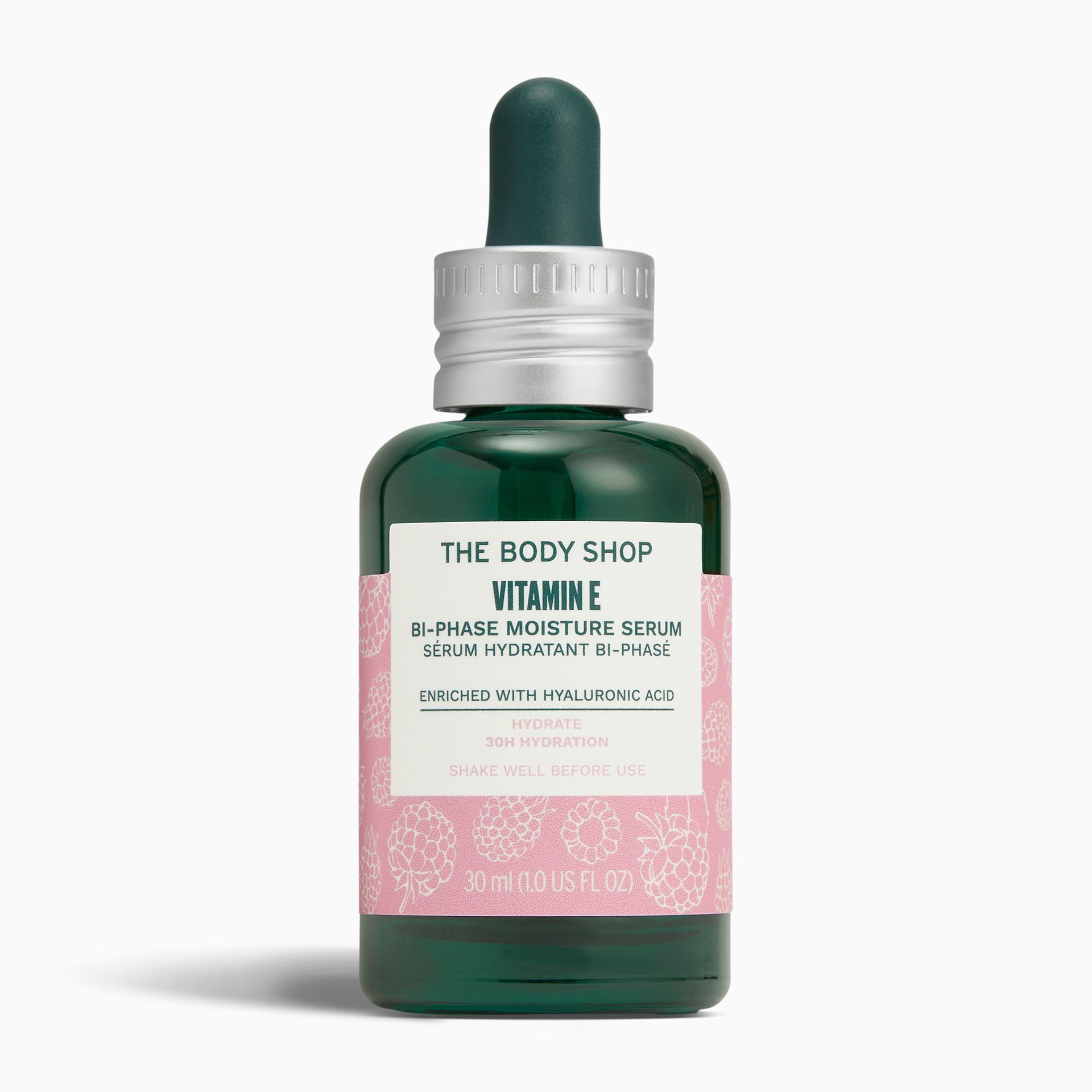
Ingredients: Vitamin E, glycerin, raspberry seed oil, sesame seed oil, sunflower seed oil, hyaluronic acid
Vitamin E oil is more of a heavyweight contender that should be reserved for dry skin types. Because it's an antioxidant, vitamin E is another oil that's great at protecting skin from pollution, but it really comes into its own when it comes to hydration and repair. Vitamin E is deeply nourishing, as it tackles dryness and repairs damage done from burns or scars. It's also a natural anti-inflammatory, so it does wonders to soothe damaged skin. So, it's a great choice for sensitive skin. The Body Shop's iconic Vitamin E range includes this bi-phase oil-in-serum, which intensely nourishes and shields sensitive skin with a cocooning barrier.
Pros
- Great for sensitive or dry skin types
Cons
- It sometimes needs a shake before you apply it
8. La Mer The Renewal Oil
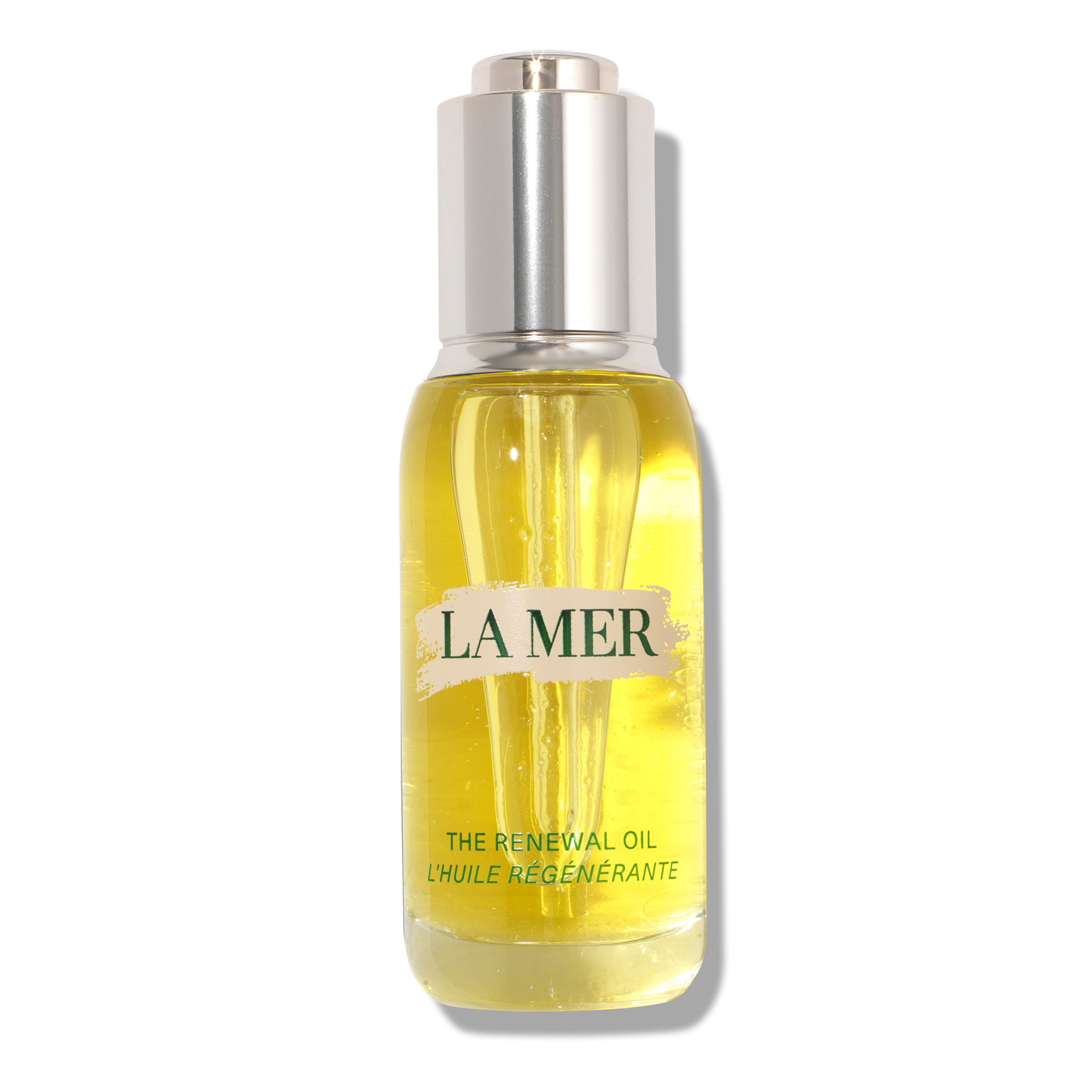
Ingredients: Meadowfoam seed oil, sweet almond oil, jojoba oil, seaweed, La Mer's miracle broth formula, sunflower seed oil, sesame seed oil, rapeseed oil, olive oil
"If there’s one product that consistently earns its place in my top shelf, it’s La Mer’s Renewal Oil," says Eleanor. "A multitasking elixir swirled with the brand’s legendary Miracle Broth, this face oil is nothing short of luxury. Light yet decadently silky, it strikes the balance of feeling nourishing without being greasy. A few drops pressed the skin leaves your complexion instantly softened, plumped and glowing, like you've just had a facial. And it layers like a dream. Whether you're cocktailing it into your foundation for a dewy finish or sealing in your night cream, its uses know no bounds. I like to use any excess on my cuticles to reap the benefits on my hands too."
Pros
- Luxurious formula
Cons
- Eye-wateringly expensive
9. The Ordinary 100% Organic Cold-Pressed Moroccan Argan Oil
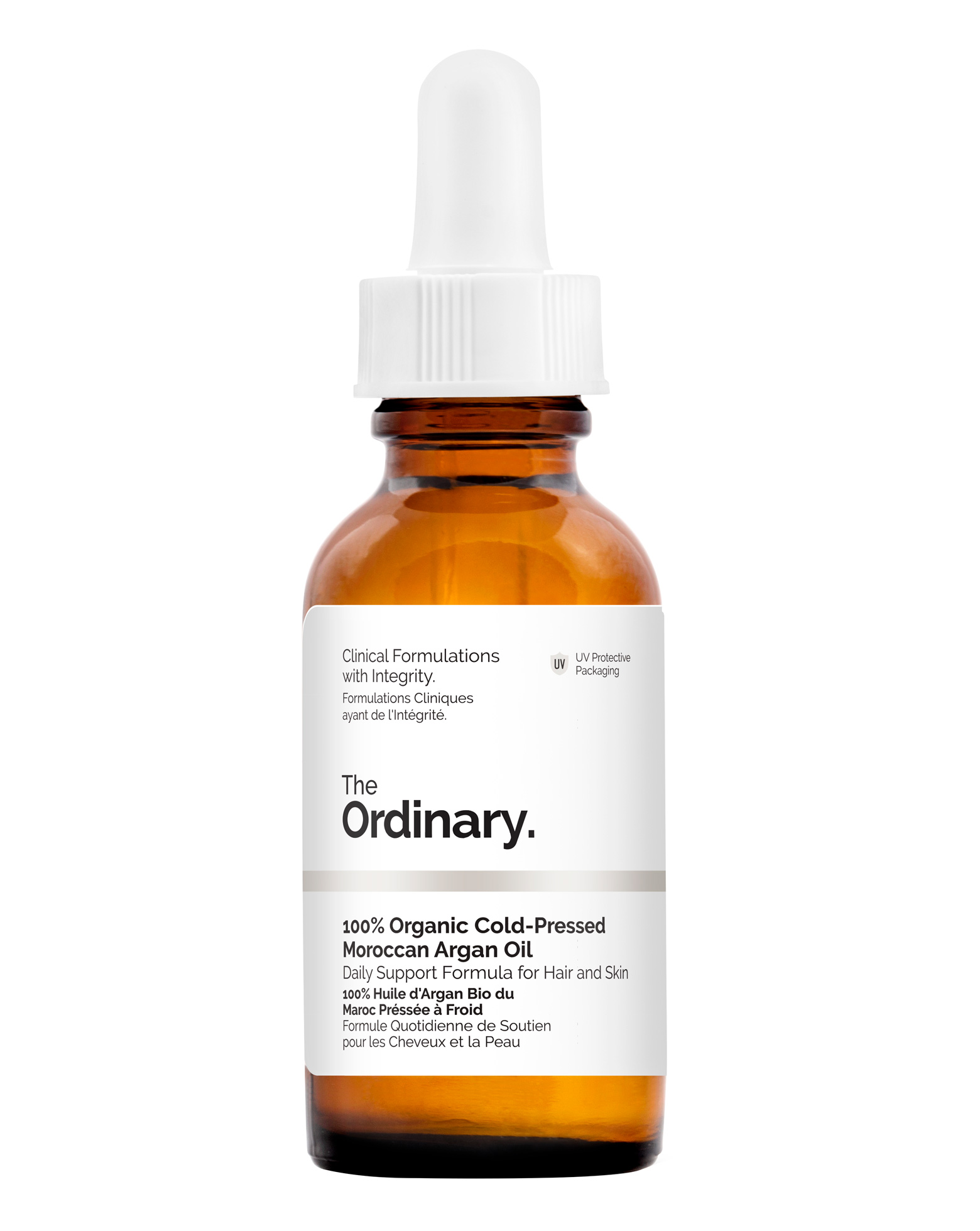
Ingredients: Argan seed oil
Argan oil is an all-natural plant-derived oil that contains vitamin E and fatty acids, meaning it's brilliant for moisturising the hair, body and face. Because of this, argan is best for skin that's dehydrated rather than skin that's oily and suffers from breakouts. This affordable option from The Ordinary is a great choice if you're new to face oils or want something that won't break the bank.
Pros
- Affordable
- Simple but effective formula
Cons
- Some find the scent can be strong
How We Tested
We asked the Who What Wear UK editors, who have tried hundreds of face oils between them, to share their tried-and-tested favourites. We evaluated different face oils on different skin types so that you can find the best one for your skin's needs. From oily skin to dry skin and more mature skin to acne-prone complexions, we've road-tested the best face oils across budgets so that you can find the very best one that is right for you.
- Eleanor VousdenBeauty Editor, Who What Wear UK